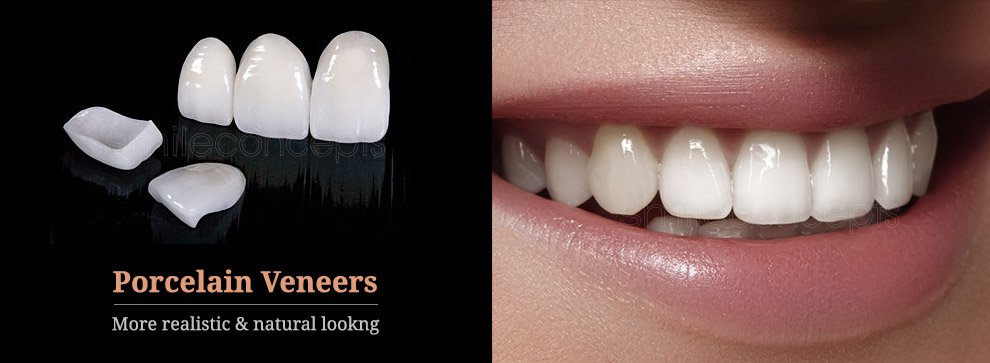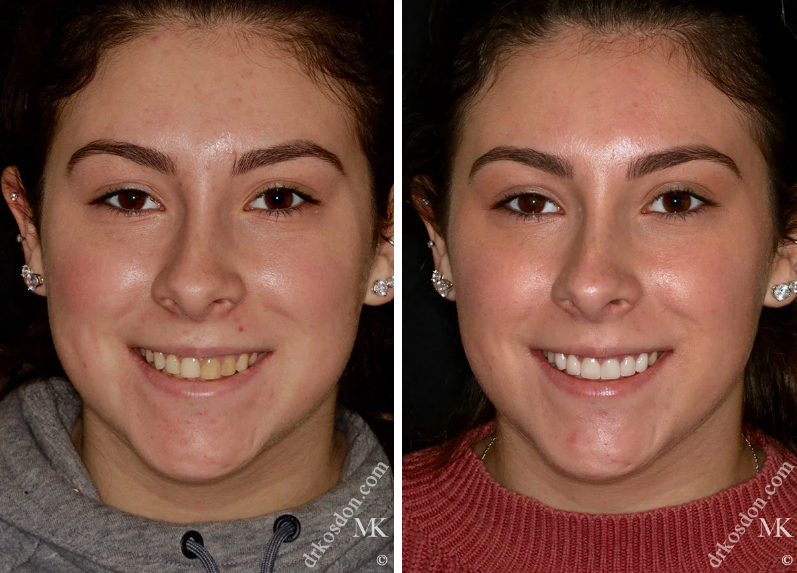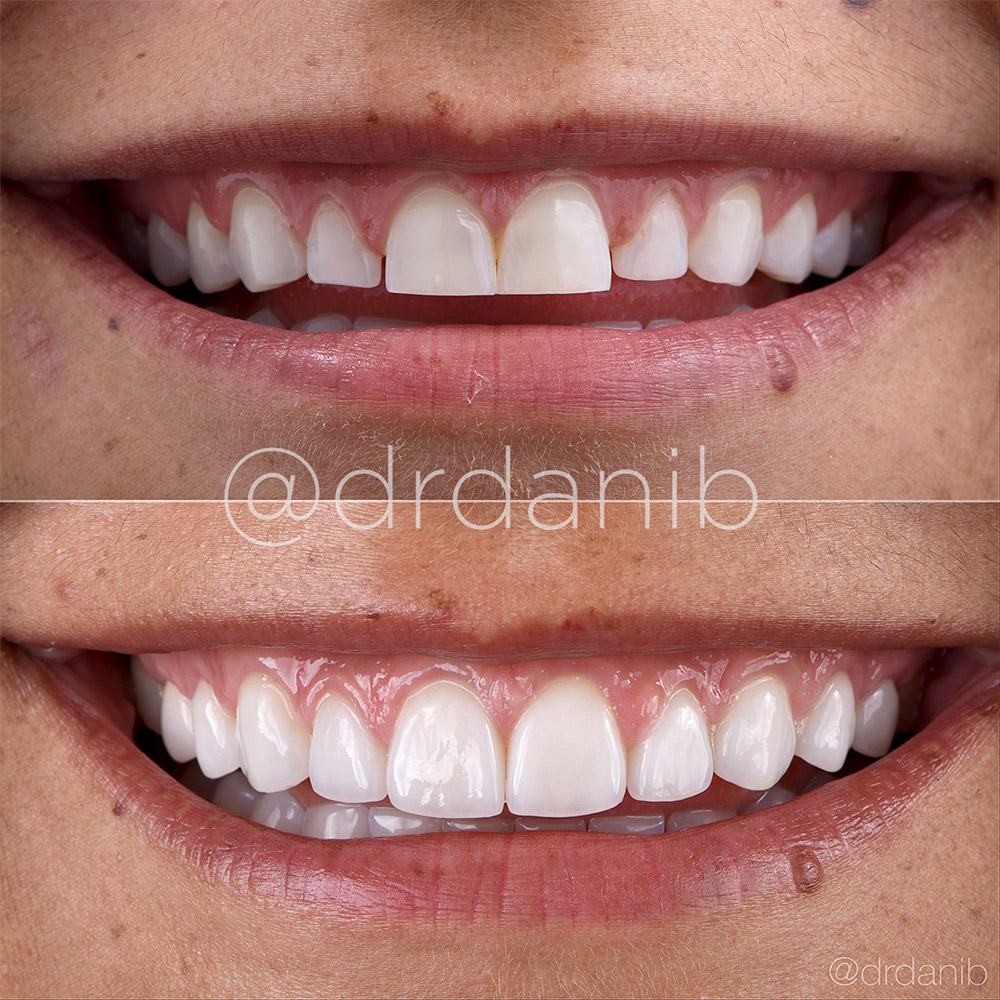Understanding Veneers Teeth Options for a Brighter, Confident Smile
Unlocking the Keys of Veneers: Truths, Types, and Advantages for a Stunning Smile
Veneers offer a compelling service for those looking for to enhance their smiles. These oral improvements can address numerous blemishes, from discoloration to imbalance. With options like porcelain and composite, individuals can choose based upon their needs and choices. Comprehending the nuances of veneers, consisting of application and treatment, is vital. What elements should one think about prior to making a choice? The responses might surprise those thinking about this aesthetic oral option.

Understanding Veneers: What Are They?
Veneers are thin, personalized shells made to cover the front surface of teeth, boosting their appearance. Commonly crafted from resilient materials, these coverings are tailored to fit each person's teeth specifically. They serve multiple objectives, consisting of dealing with visual blemishes such as staining, chips, or voids. The application procedure includes a dentist preparing the teeth, usually by removing a percentage of enamel to guarantee a snug fit. When prepared, the veneers are adhered to the teeth making use of a strong adhesive.
Individuals often pick veneers for their capacity to develop a natural-looking smile while giving a long-lasting option to oral blemishes. Unlike other cosmetic dental care options, veneers require marginal invasive procedures, making them a preferred selection. The outcome is an improved smile that can considerably boost an individual's confidence and self-esteem. In general, veneers provide an effective strategy to attaining an extra attractive and harmonious dental appearance.
Kinds of Veneers: Porcelain vs. Composite
When thinking about cosmetic oral alternatives, two key types of veneers attract attention: porcelain and compound. Porcelain veneers are crafted from a resilient ceramic material that imitates the natural appearance of teeth. They are understood for their tarnish resistance and capacity to reflect light similarly to all-natural enamel, giving an aesthetic appeal that several clients desire. The application procedure generally includes more prep work of the tooth framework and may call for multiple brows through to the dental practitioner.
On the various other hand, composite veneers are made from a tooth-colored resin that is straight applied to the teeth. This kind enables for quicker application and can frequently be finished in a single go to. While they are less costly than porcelain veneers, they may not supply the exact same long life or resistance to staining. Inevitably, the choice in between porcelain and composite veneers relies on specific preferences, spending plan, and details dental needs.
The Advantages of Deciding On Veneers
Selecting veneers provides various advantages that can significantly boost both the aesthetics and performance of a person's smile. One of the main benefits is their capacity to fix blemishes such as staining, spaces, and misalignment, leading to an extra uniform look. Veneers can also enhance the durability of teeth, giving a safety layer that guards them from damage.
Furthermore, they require very little tooth prep work contrasted to various other dental treatments, protecting more of the natural tooth framework. This conservation adds to a much healthier dental atmosphere while still accomplishing a spectacular smile.
Veneers are extremely personalized, permitting people to select the shape, dimension, and color that best fits their choices. In addition, they are stain-resistant, making it simpler to preserve a eye-catching and bright smile in time. On the whole, veneers offer an effective choice for those seeking both aesthetic improvement and long-term dental wellness benefits.
The Veneer Application Process
The veneer application procedure involves numerous key actions to assure optimal results. Originally, an assessment is performed to evaluate the individual's demands, followed by the prep work and shaping of the teeth. Ultimately, the veneers are adhered in position, with changes made for a perfect fit and appearance.
Initial Consultation Tips
An extensive initial appointment is important for anyone thinking about veneers, as it sets the foundation for a successful treatment. Throughout this meeting, the dental expert reviews the person's oral wellness, talking about any existing issues that could impact the veneer application. This evaluation may include X-rays and an aesthetic exam to establish the problem of the teeth and gum tissues.
The dental expert also engages the patient in an in-depth conversation about their visual objectives, preferences, and assumptions. They might offer numerous veneer alternatives customized to the patient's certain requirements. Additionally, the specialist explains the treatment, prospective risks, and aftercare requirements, ensuring that the person is well-informed and comfortable before proceeding with the therapy.
Preparation and Shaping Teeth
After the initial examination, the following phase involves the preparation and shaping of the teeth to suit the veneers. This crucial action is carried out by the dentist, that very carefully assesses the tooth framework to determine the quantity of enamel that requires to be removed. Usually, a slim layer, normally around 0.5 millimeters, is slashed off to guarantee an appropriate suitable for the veneers. Precision is vital throughout this procedure, as it influences both the aesthetic outcome and the total comfort. As soon as the teeth are properly shaped, impacts are required to create custom-made veneers that straighten flawlessly with the client's oral account. This careful preparation sets the stage for a successful veneer application, boosting both look and function.
Bonding and Final Changes
Following the shaping and prep work of the teeth, the bonding process begins, noting a crucial stage in the veneer application. Throughout this phase, an oral adhesive is related to the prepared tooth surface area, assuring a solid bond in between the veneer and the tooth. The dental professional diligently places the veneer, making adjustments to accomplish the desired positioning and aesthetics. When correctly positioned, an unique light is utilized to our website cure the adhesive, strengthening the bond. After treating, the dental expert performs last modifications, trimming any kind of excess material and fine-tuning the veneer's shape to guarantee a natural appearance. This careful attention to detail boosts both feature and appearances, adding to a total gorgeous smile that is resilient and resilient.
Taking care of Your Veneers: Maintenance Tips
Taking care of veneers is necessary to preserve their look and longevity. A consistent everyday cleaning regimen, mindful evasion of discoloring foods, and routine oral exams are essential parts of effective upkeep. These practices help ensure that veneers remain in peak condition and remain to improve one's smile.
Daily Cleansing Regimen
Consistently maintaining veneers is crucial for their durability and appearance. An appropriate everyday cleaning regimen can assist maintain their sparkle and protect against damage. Dental practitioners suggest brushing twice a day with a soft-bristled tooth brush and fluoride tooth paste, guaranteeing that all surfaces are cleaned carefully to stay clear of damaging the veneer surface. Flossing daily is additionally essential to get rid of food bits and plaque from between teeth, where brushes may not reach. In addition, utilizing an antimicrobial mouth wash can assist maintain dental hygiene without harming the veneers. It is recommended to avoid unpleasant cleansers and tools that can scrape the veneer. By following these easy steps, people can maintain their veneers looking attractive while promoting total oral health and wellness.
Preventing Discoloration Foods
Veneers are made to boost the look of teeth, their vulnerability to tarnishing requires careful nutritional options. It is necessary for individuals with veneers to be conscious of particular foods and beverages that can bring about discoloration. Dark-colored things such as coffee, red wine, and berry juices must be eaten in moderation, as they are understood to stain both all-natural teeth and veneers. Furthermore, acidic foods like citrus fruits canister compromise the bonding agents utilized in veneers, making them much more susceptible to staining. To maintain an intense smile, it is recommended to rinse the mouth with water after taking in discoloration foods and to practice routine dental hygiene. These thoughtful choices contribute substantially to the longevity and appearances of useful source veneers.

Routine Dental Examinations

Maintaining the stability of veneers calls for a dedication to routine dental check-ups, as these appointments play a vital role in ensuring their longevity and appearance. Throughout these sees, oral experts can evaluate the condition of the veneers, checking for any kind of signs of wear, damage, or underlying oral problems. Additionally, regular cleansings aid remove plaque and tartar that can gather around the veneers, advertising overall oral health. Dental experts can also give individualized advice on treatment methods and products fit for veneer upkeep. By adhering to a routine of check-ups, people can address prospective issues early, guaranteeing their smile continues to be gorgeous and vivid. Ultimately, normal oral brows through are a crucial component of veneer treatment.
Is Veneers the Right Choice for You?
Deciding whether veneers are the right alternative commonly depends upon private dental demands and visual objectives. For those seeking to resolve issues such as discoloration, chips, or misalignment, veneers can give a transformative service. Candidates normally consist of people with healthy teeth yet want an improved smile.
Nonetheless, it is important to consider variables such as tooth enamel problem, the level of dental issues, and the desire to keep veneers - Porcelain Veneers. Consulting with a dental professional is crucial, as they can review oral health and identify if veneers are appropriate
In addition, possible candidates must assess the lasting dedication, as veneers might call for replacement every 10-15 years. Cost considerations additionally play a substantial duty, as veneers can be a considerable financial investment. Eventually, the choice ought to be knowledgeable, stabilizing aesthetic desires with functional considerations for lasting outcomes.
Regularly Asked Questions
How Much Time Do Veneers Generally Last Prior To Requiring Substitute?
Veneers generally last between 10 useful source to 15 years before needing replacement. Factors such as dental health, lifestyle options, and material high quality can affect their longevity, making routine dental check-ups important for preserving their condition.
Are Veneers Safe for Individuals With Sensitive Teeth?
Veneers can be safe for people with sensitive teeth, however it usually depends on the seriousness of sensitivity and the dental professional's method. Consulting a dental professional before proceeding is important to guarantee ideal results.
Can Veneers Be Gotten Rid Of or Changed Easily?

Do Veneers Discoloration Over Time, and Exactly How Can I Prevent It?
Veneers can stain gradually, particularly from foods and drinks like coffee or red white wine. To avoid staining, maintaining great oral health, making use of a straw for beverages, and normal oral cleanings are recommended practices.
What Is the Cost Variety for Getting Veneers?
The expense of veneers generally ranges from $500 to $2,500 per tooth, relying on aspects such as material kind, dentist experience, and place. People must talk to oral experts for individualized quotes and funding choices.
When the teeth are properly formed, impacts are taken to develop customized veneers that line up flawlessly with the client's oral profile. Throughout this phase, an oral adhesive is applied to the ready tooth surface area, guaranteeing a strong bond between the veneer and the tooth. It is essential to take into account factors such as tooth enamel condition, the degree of oral concerns, and the willingness to maintain veneers. Veneers can be secure for people with sensitive teeth, yet it typically depends on the seriousness of sensitivity and the dental practitioner's technique. The expense of veneers usually ranges from $500 to $2,500 per tooth, depending on variables such as material kind, dental practitioner experience, and location.